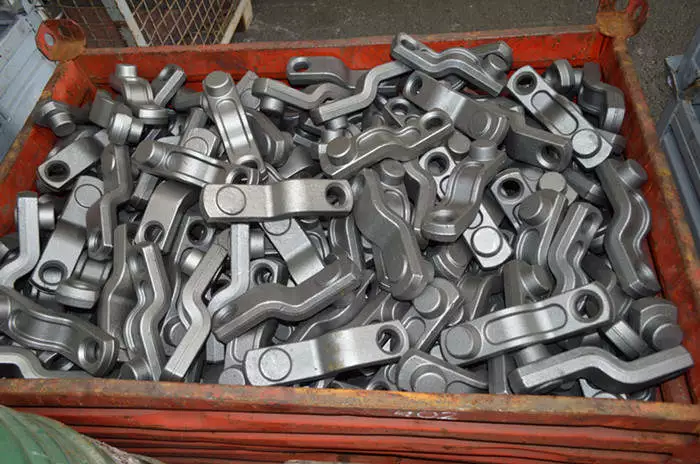Precision Forging Services
Precision Forging Services
 What Is Precision Forging?
What Is Precision Forging?
Precision forging, also referred to as net-shape or near-net-shape forging, is an advanced metalworking process focused on producing high-precision and intricately designed components with minimal or no need for subsequent machining or finishing, distinguishing it from traditional closed die forging methods. This manufacturing technique is characterized by its ability to create parts with tight tolerances, excellent surface finish, and intricate geometries.
The Precision Forging Process
In precision forging, the preheated billet undergoes intense pressure, commonly applied via hydraulic presses or mechanical hammers. This carefully managed deformation directs the metal to flow and fill the intricate cavities of the dies. The outcome is a final component that closely aligns with the desired specifications, frequently necessitating minimal or no additional machining or finishing.
Advantages of precision forging
1. Material Conservation: Precision forging is efficient in its use of materials, striving to shape the desired form with minimal excess material. This not only leads to cost savings but also contributes to a reduced environmental impact.
2. Broad Material Versatility: Precision forging is versatile in its compatibility with a wide range of materials, such as steel, aluminum, titanium, and various alloys, rendering it adaptable to diverse industry needs.
2. Broad Material Versatility: Precision forging is versatile in its compatibility with a wide range of materials, such as steel, aluminum, titanium, and various alloys, rendering it adaptable to diverse industry needs.
3. Shaping Components with Intricate Designs: It enables the manufacturing of components with complex shapes and detailed features that may be challenging or be unattainable using conventional forging or machining techniques.
4. Improved Mechanical Properties: Similar to other forging techniques, precision forging enhances the mechanical properties of the material, including its strength and resilience, through the alignment of the grain structure.
The Precision Forging Applications
Precision forging finds extensive use in industries like aerospace, automotive, medical, and defense, where there is a critical need for high-precision and high-strength components. Illustrative examples of precision-forged products include aircraft engine components, automotive transmission gears, and medical implants.
Precision forging represents a culmination of metalworking, facilitating the creation of components with unparalleled precision, strength, and material efficiency. Its usage extends across vital sectors, serving as a crucial contributor to contemporary manufacturing.
Precision forging represents a culmination of metalworking, facilitating the creation of components with unparalleled precision, strength, and material efficiency. Its usage extends across vital sectors, serving as a crucial contributor to contemporary manufacturing.
